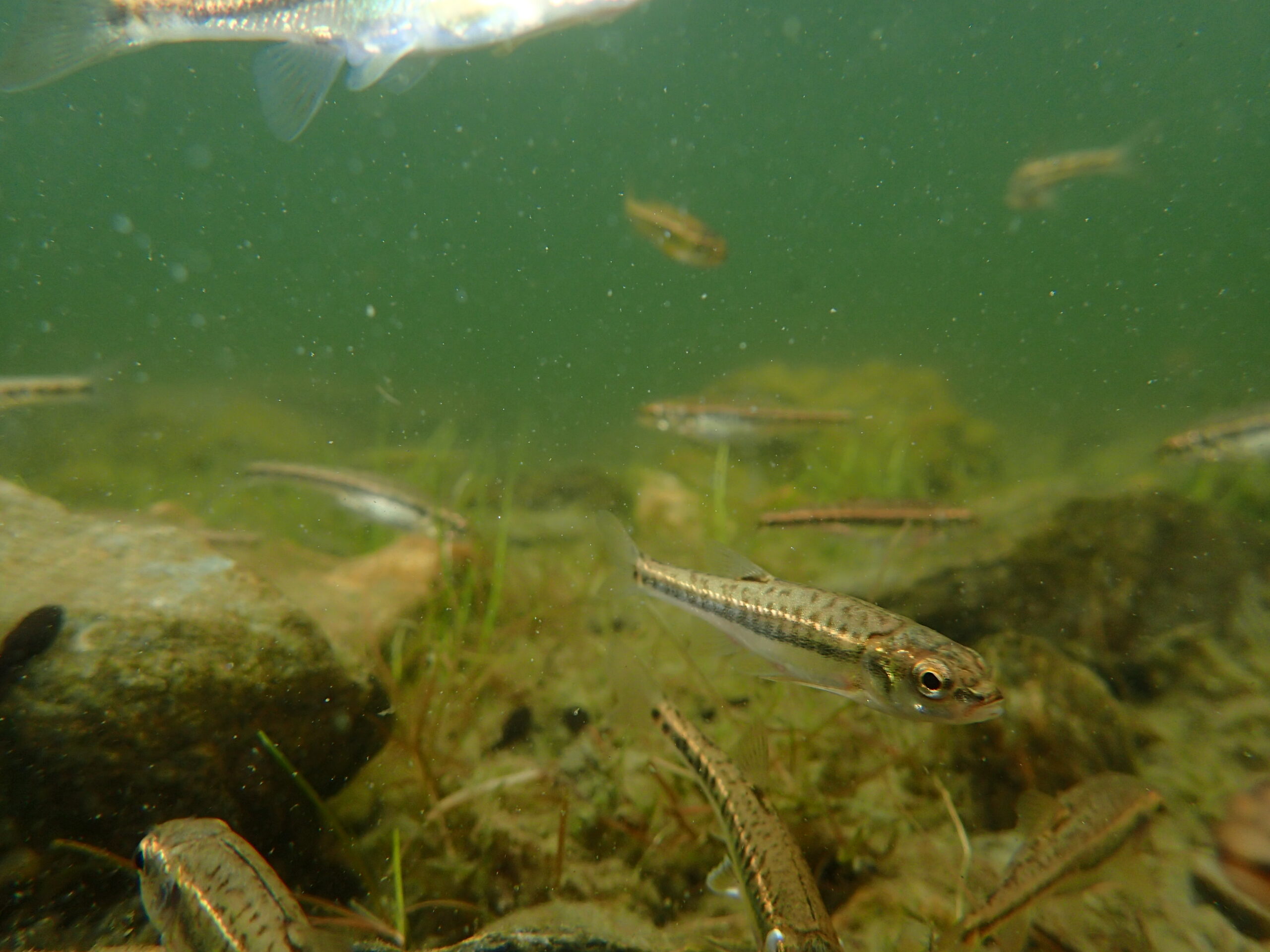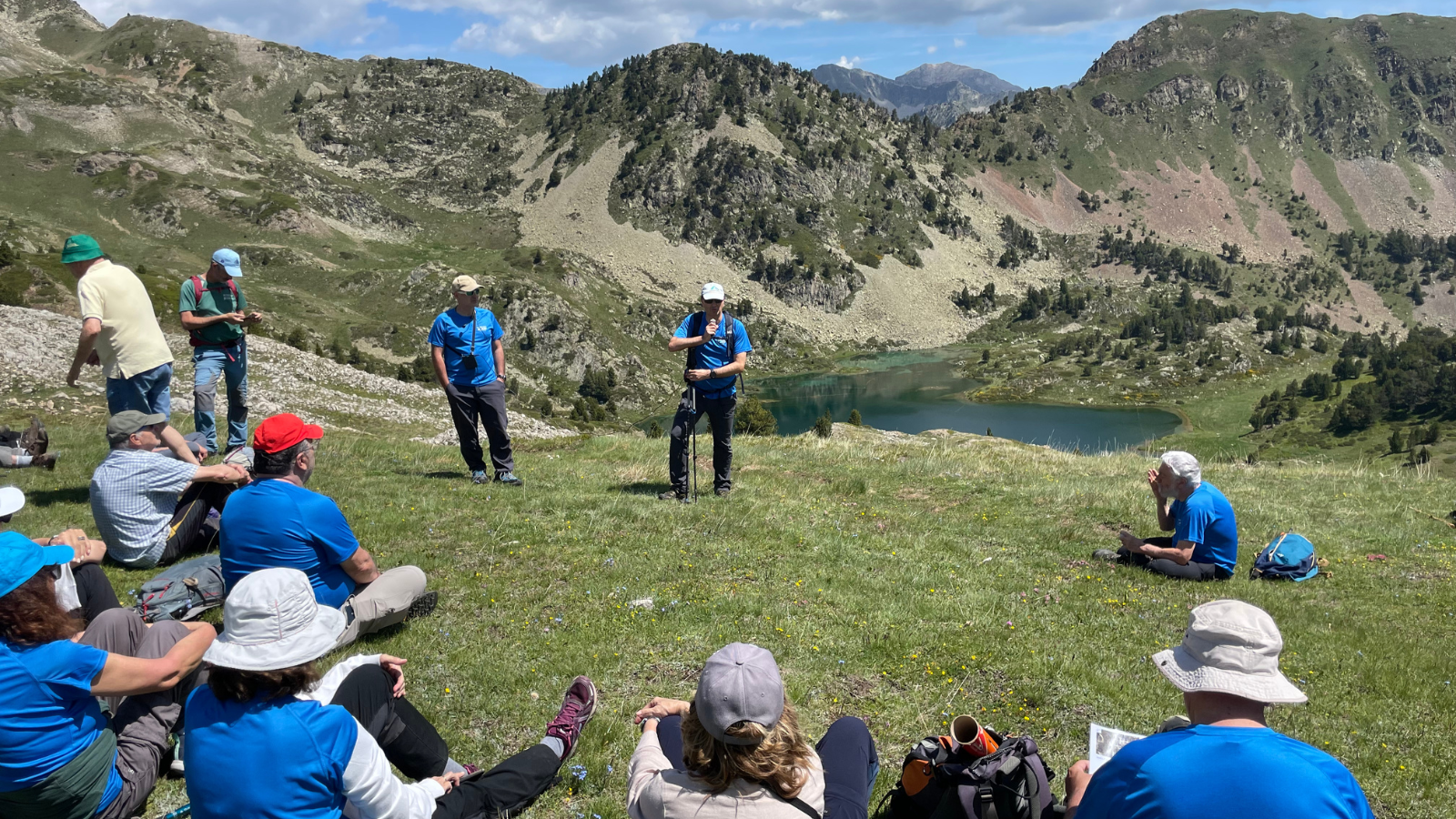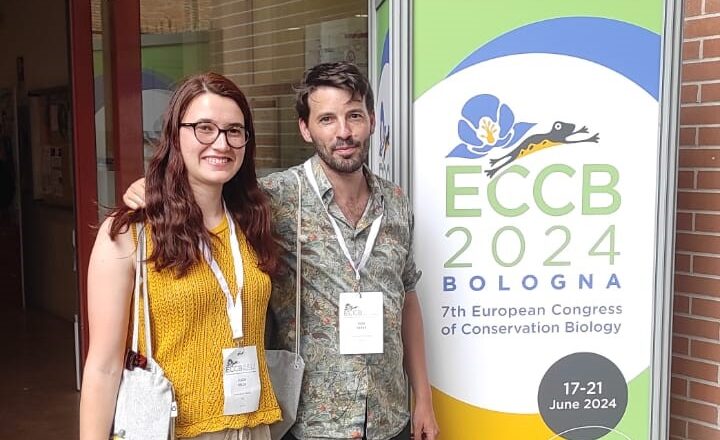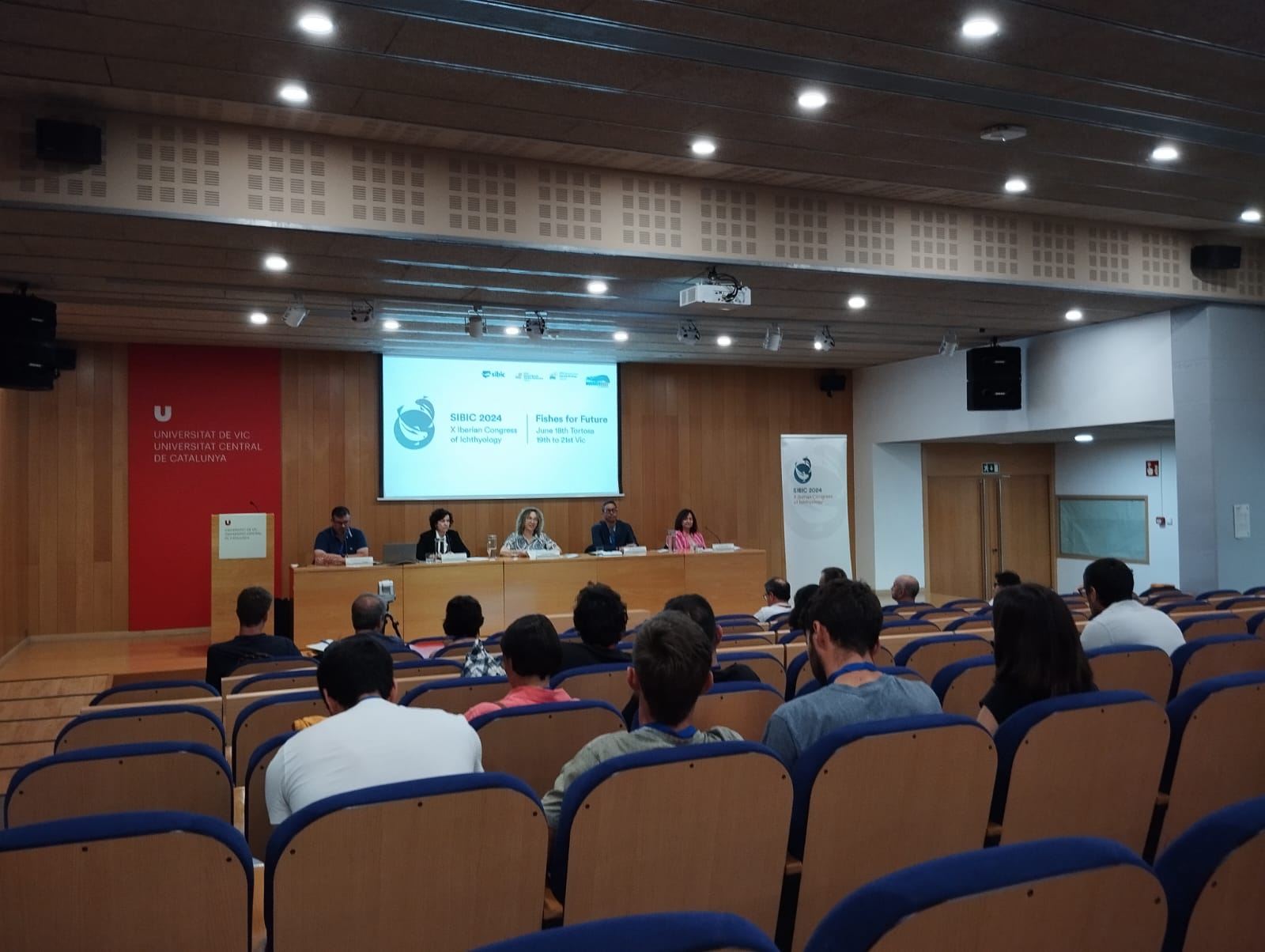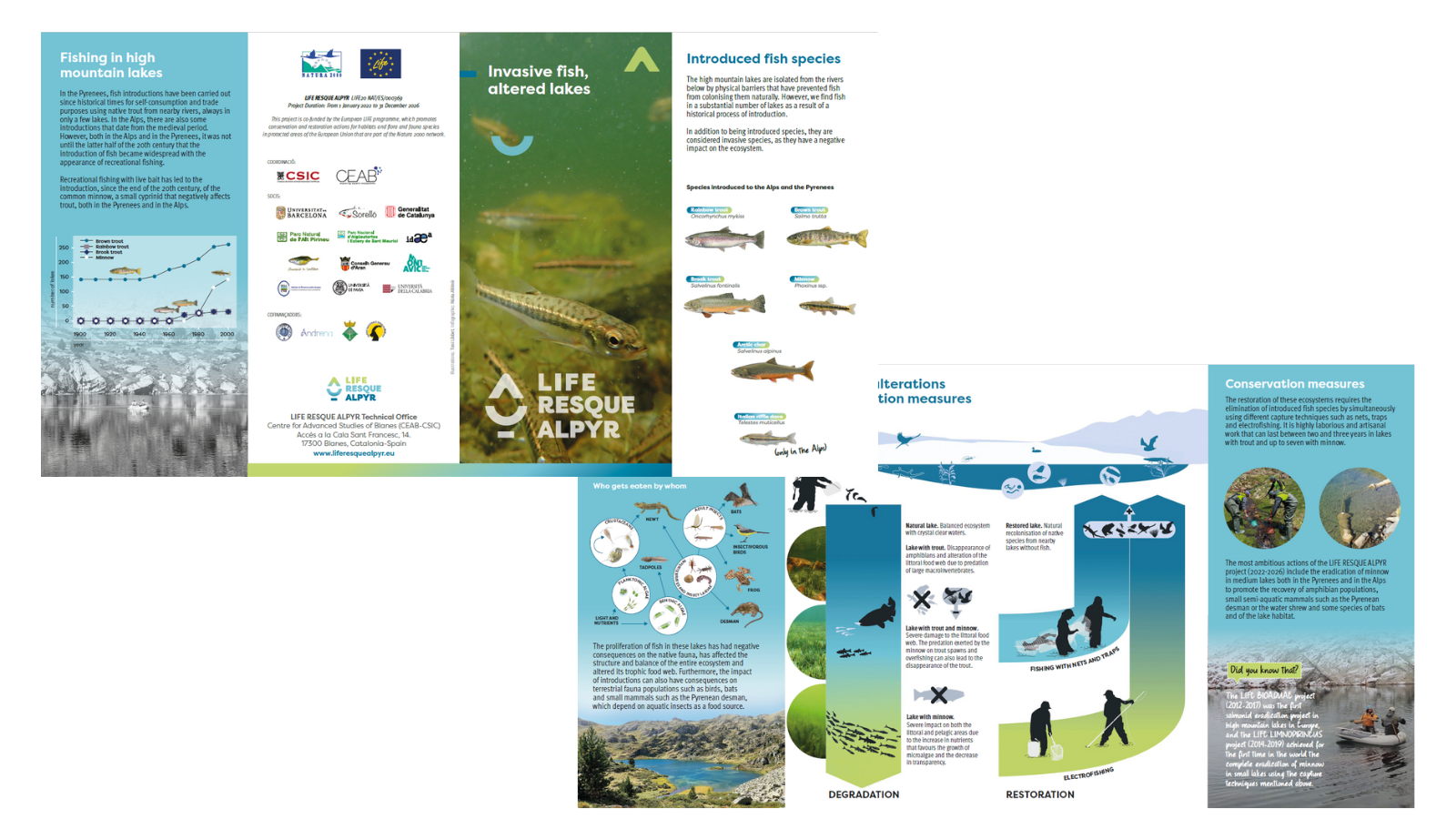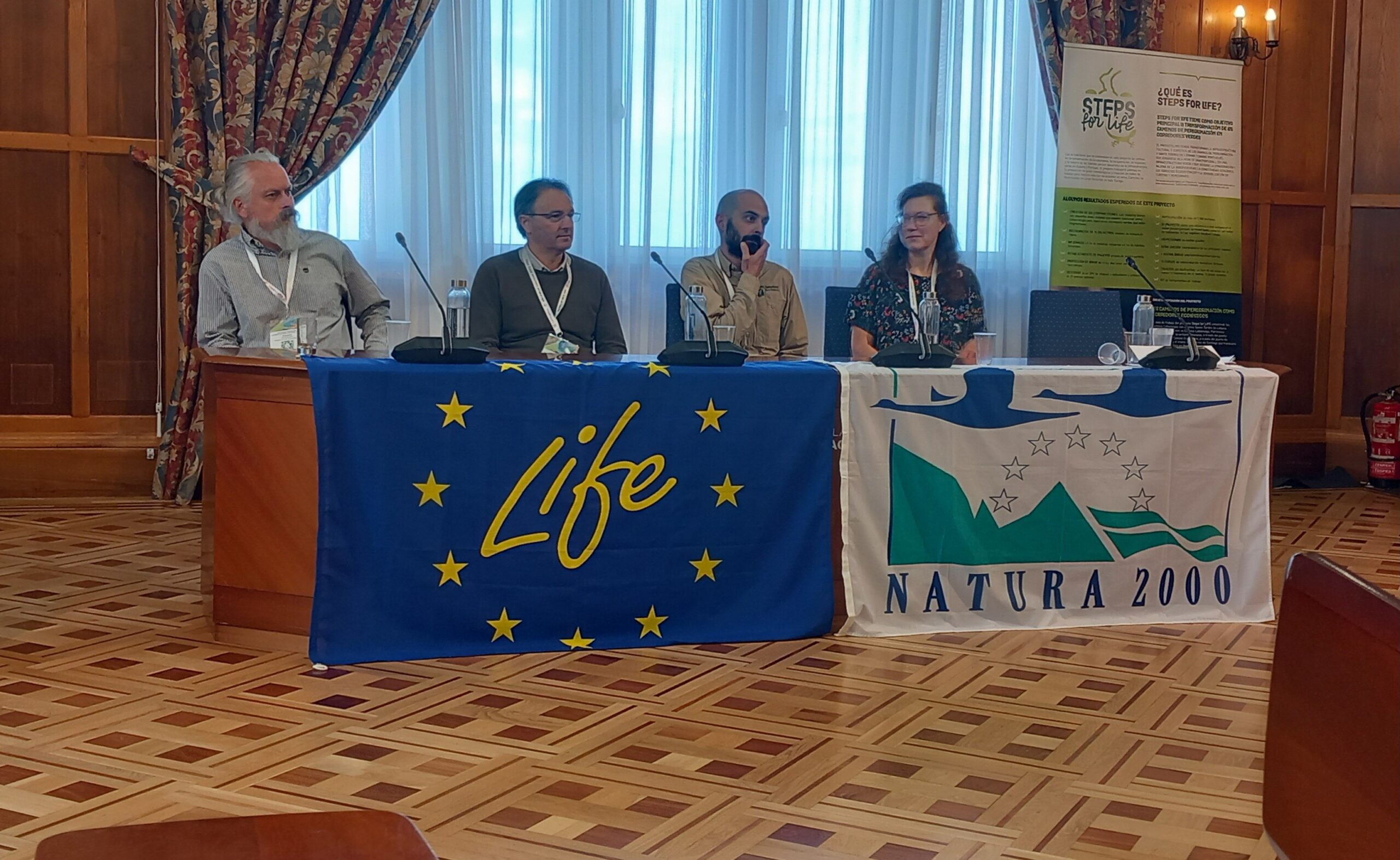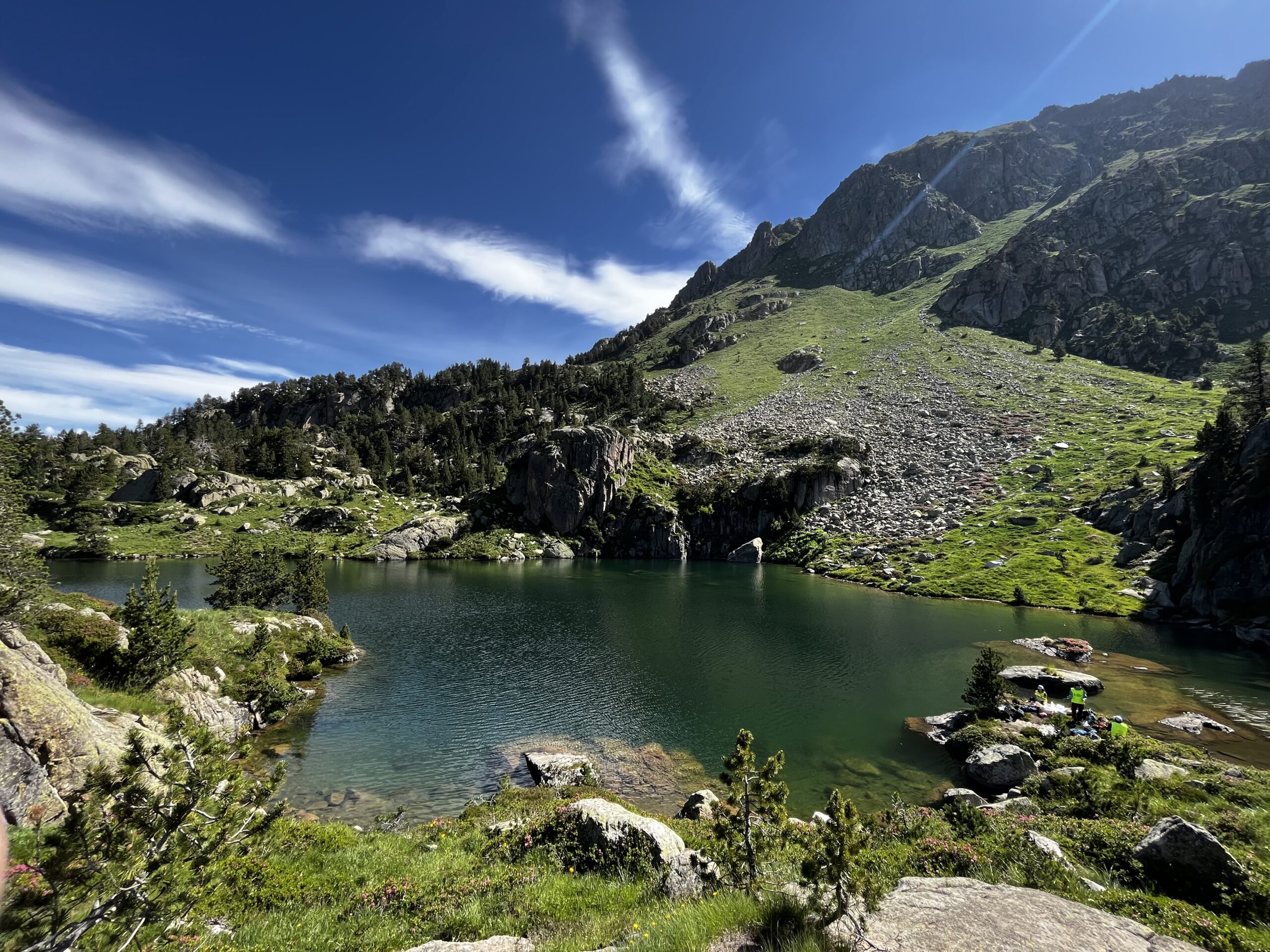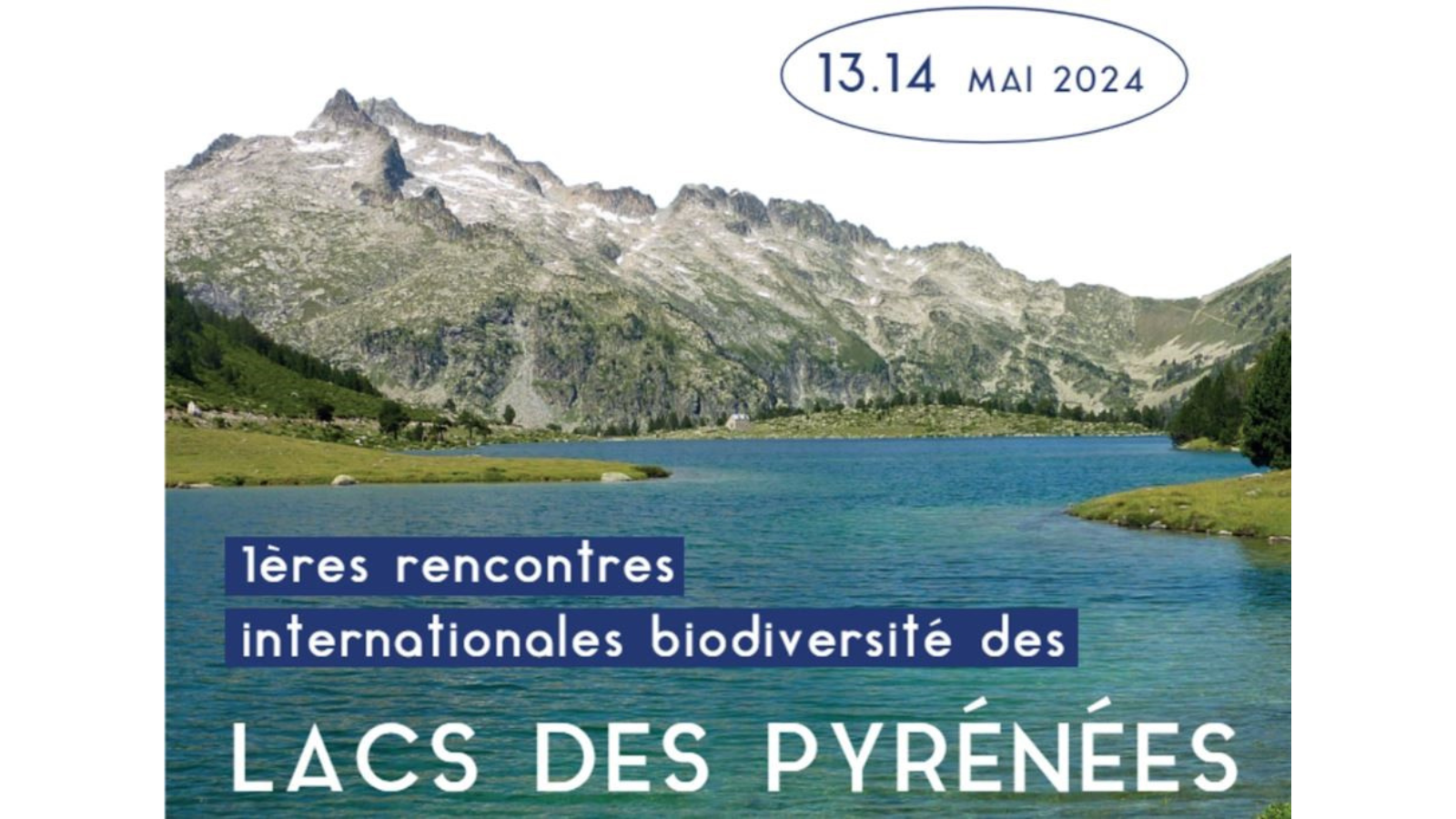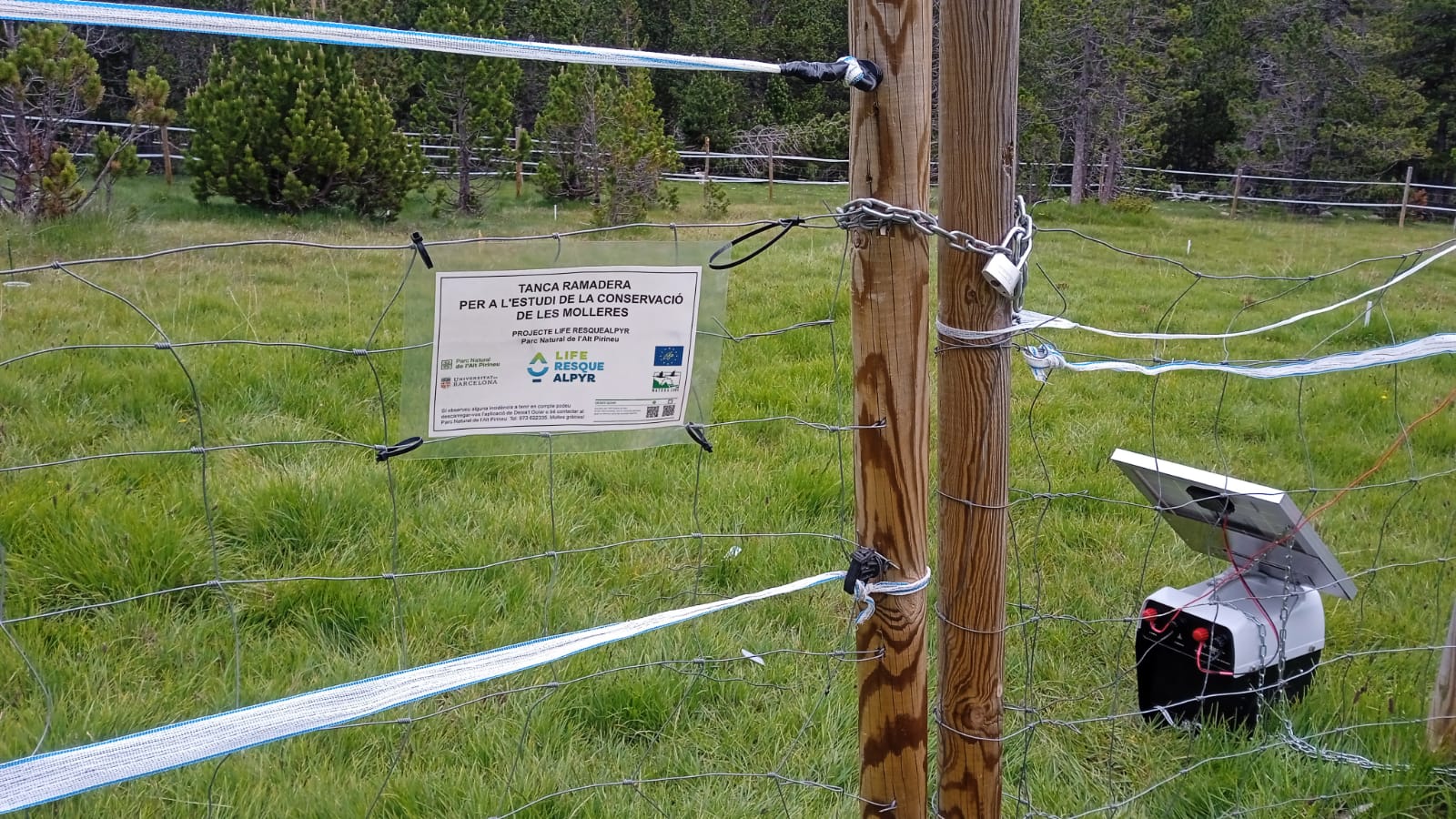-
Invasive fish, altered lakes
Biodiversity in high mountain lakes is greater than one might notice at first glance. It goes from tiny organisms such as microscopic algae and small crustaceans that are part of the plankton to plants, molluscs, worms, insects and amphibians that live both at the bottom and on the shore of the lake and which because…
-
We participated in the XXXVII Field Days of Physical Geography
Between June 25th and 29th, 2024, the XXXVII Field Days of Physical Geography were held in the Pyrenees of Lleida, organized by the Research Group in Mountain Areas and Landscape (GRAMP) of the Department of Geography and the Botany Unit of the Autonomous University of Barcelona, in collaboration with the Alt Pirineu Natural Park. Under…
-
Explaining the negative impacts of introduced fish at ECCB 2024
The project LIFE RESQUE ALPYR has participated at the 7th European Congress of Conservation Biology held in Bologna (Italy) between 17 and 21 June 2024. Our PhD student, Lucia Bello, from the University of Calabria, contributed with an oral presentation discussing the preliminary results of how introduced fish might have a negative impact on shrew…
-
The conservation of native fish of the Iberian Peninsula is the focus of the 10th Iberian Congress of Ichthyology
Researchers from the project were among the speakers at the 10th Iberian Congress of Ichthyology, ‘Fish for the Future’, organized by the Iberian Society of Ichthyology (SIBIC) and the University of Vic – Central University of Catalonia. The scientific meeting was held in Tortosa and Vic on June 18 and 21, 2024. This time, the…
-
We are on the iNaturalist platform!
The LIFE RESQUE ALPYR project, dedicated to the conservation and restoration of high mountain aquatic ecosystems in the Pyrenees and the Alps, has taken another step towards citizen participation by creating a profile on the iNaturalist platform. This initiative aims to involve the public in the collection of data on the flora and fauna of…
-
Published the third brochure of the project
The high mountain lakes are isolated from the rivers below by physical barriers that have prevented fish from colonising them naturally. However, we find fish in a substantial number of lakes as a result of a historical process of introduction. In addition to being introduced species, they are considered invasive species, as they have a…
-
European Summit on Amphibian and Reptile Conservation: LIFE Platform Meeting 2024
A hundred national and international experts have addressed the challenges and opportunities regarding amphibian and reptile conservation in Europe within the framework of the ‘LIFE Platform Meeting: Amphibian & Reptile Conservation’. The congress took place from May 22nd to 24th in Cantabria and was directed by the Camino Lebaniego Foundation, a public entity attached to…
-
Audiovisual pills to know the project
We are thrilled to kick off the 13 audiovisual capsules we have prepared so you can learn all the details about our project. This first video will give you an overview of the project, its objectives, and the main restoration and conservation actions. Starting today, you will find a new capsule every month. The videos…
-
First International Meeting on the Biodiversity of the Pyrenean Lakes
During May 13 and 14, 2024, the First International Meeting on the Biodiversity of the Pyrenean Lakes took place in Loudenvielle, Hautes-Pyrénées. The meeting was organized by the CBN of the Pyrenees and Midi-Pyrénées as the secretary of the scientific interest group (GIS) “Lacs des Pyrénées” and brought together researchers, managing entities, and decision-makers committed…
-
Overgrazing and reforestation in the mires of the Pyrenees
On April 24th, the conference “Overgrazing and Reforestation in the Pyrenees Mires” was held, led by Aaron Pérez Hase and Eulàlia Pladevall Izard, researchers from the University of Barcelona and the LIFE RESQUE ALPYR project The talk is part of the conference and field trip program of the seminar “Prats i pastures, espais de biodiversitat”…



